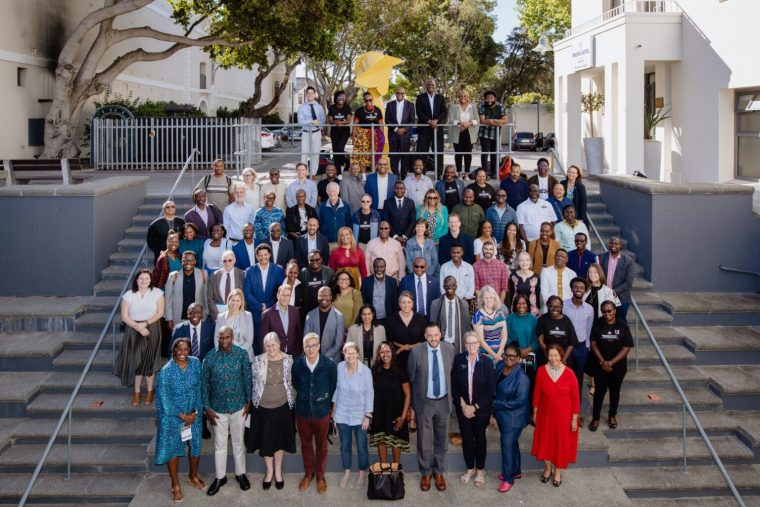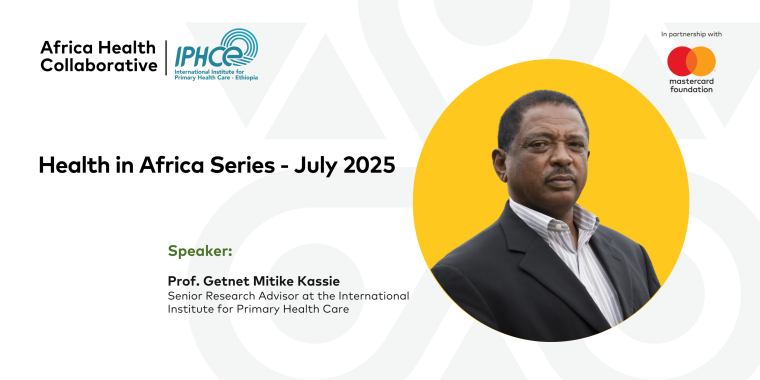Africa is facing a projected shortfall of 6.1 million health workers by 2030—a crisis threatening progress toward Universal Health Coverage and the SDGs. With only 1.55 health workers per 1,000 people, most African countries fall far below the WHO’s recommended threshold. The consequences? Overstretched systems, unequal access, and poor health outcomes.
In this edition of the Health in Africa Series, we explore the root causes of the health workforce crisis—from inadequate training and poor retention to underinvestment and migration—and spotlight solutions.
Our speaker, Professor Getnet Mitike Kassie, Senior Research Advisor at the International Institute for Primary Health Care – Ethiopia, will share Ethiopian lessons.
What you’ll learn:
- Why Africa’s health workforce crisis is more than a numbers game
- How Ethiopia expanded training to promote greater workforce equity
- Practical strategies in policy, investment, and system design
- How to localize the WHO Human Resources for Health Roadmap in your country
The Speaker:

Professor Getnet Mitike Kassie
Senior Research Advisor at the International Institute for Primary Health Care – Ethiopia
Prof. Getnet Mitike Kassie is a Senior Research Advisor at the International Institute for Primary Health Care – Ethiopia, focusing on synthesizing PHC knowledge for evidence-informed policy decisions. He has extensive experience in teaching and in-service training of the health workforce. He has been in academia for 18 years, including serving as Dean of the School of Public Health, Addis Ababa University. Has co-authored several peer-reviewed articles. He has been engaged in a number of national and global networks for improving the training of health professionals, implementation research, and PHC. He is an MD, holds MPH and PhD degrees in public health.
More News & Events
Skip scroller content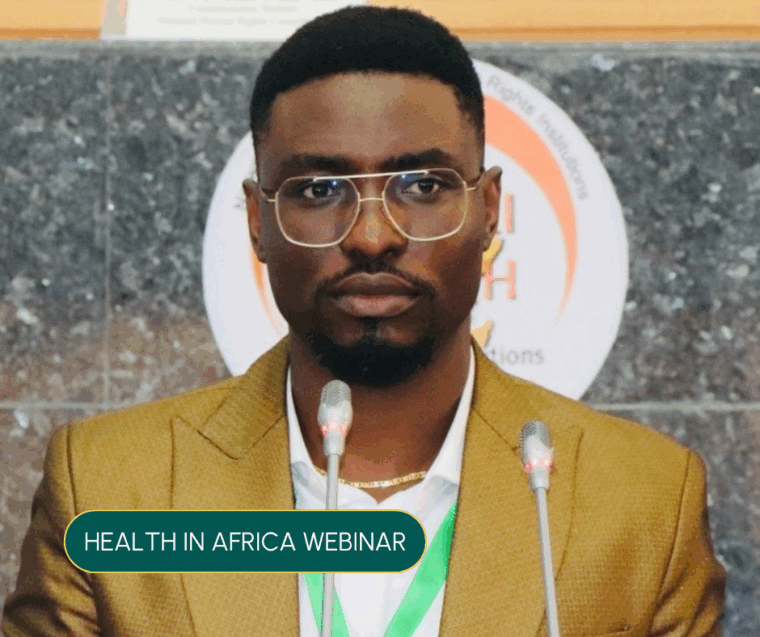
Building Inclusive Health Systems for People in Contact with the Criminal Justice System in Africa
Join this webinar to explore how Africa can build inclusive health systems that protect the dignity, safety, and well‑being of people who come into contact with the criminal justice system.
Dignity, Data, and Disruption in Africa’s Health Systems: A Young Leader’s Reflection
John Nyagaka, a Mastercard Foundation Scholar and AHC Young Leaders Table Chair, reflects on his transformative experience at the 2025 Annual Convening.
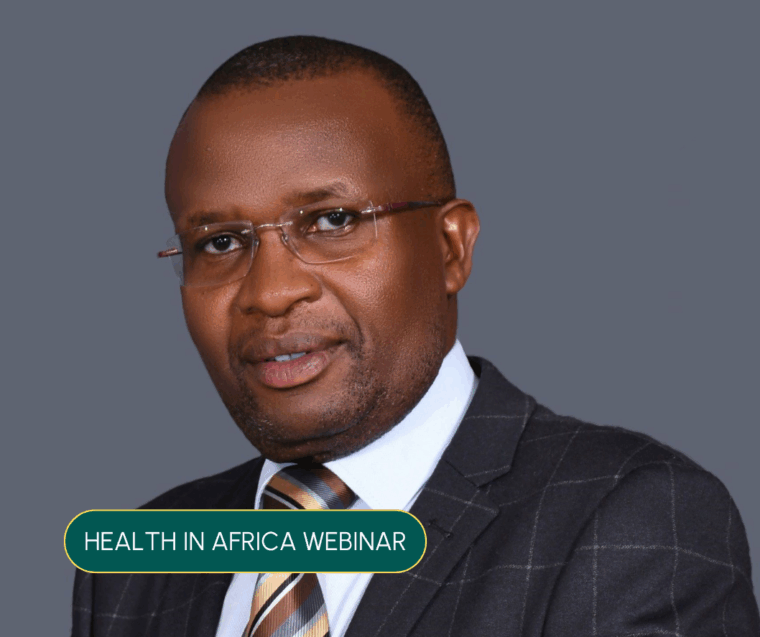
What Works: Improving Maternal and Newborn Health in Kenya and Ethiopia
Join this webinar to explore how community-led systems and digital innovations, in partnership with local leaders, are scaling sustainable healthcare impact and delivering life-saving care for mothers and their newborns.

Apply for the AIMS Master’s in Mathematical Epidemiology (MathEpi) Scholarship
Apply for the 2025 AIMS MathEpi Master’s program. Fully funded scholarships for African students in statistics and public health. Deadline: March 15.

Apply for KNUST’s CPD-Eligible Short Courses in Health Systems and Services Management
Applicants must meet the following requirements to qualify for the scholarship: Short Courses and Timelines 23rd – 27th February 2026: Emergency Preparedness and Response to Epidemic/Pandemic-Prone Diseases 10th – 14th February 2026: Community Emergency Care 24th – 27th February 2026: Palliative Care Module 1 23rd – 27th March 2026: Introduction to Healthcare Quality Improvement (IQI) […]
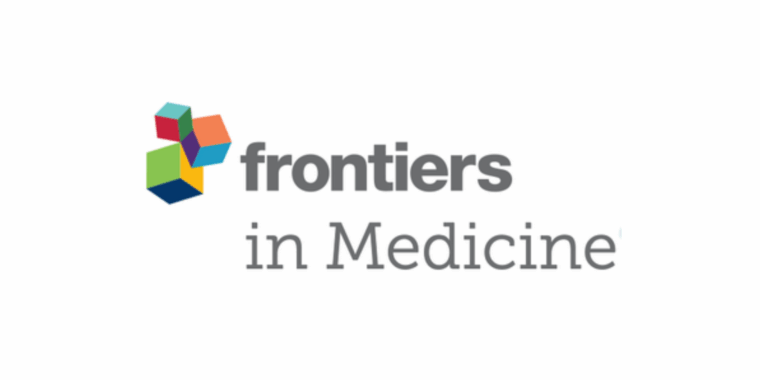
Call for Insights & Stories: Frontiers Opens Special Collection for AHC Partners
The Africa Health Collaborative (AHC) is pleased to share an exciting opportunity for all AHC institutional partners to share original research, reviews, case studies, policy briefs, perspectives, and reflective pieces in a new article collection titled “United in Partnership: Academic Collaborations for Primary Health Care Transformation” by Frontiers in Medicine. This special collection is being […]

A New Chapter of Collaboration: AHC Welcomes Prof. Joachim Osur as Executive Steering Committee Chair
The Africa Health Collaborative (AHC) has announced Prof. Joachim Osur, Vice Chancellor of Amref International University, as the new Chair of the Executive Steering Committee (ESC). The symbolic handover took place during the closing ceremony of the 2025 AHC Convening in Rwanda, held in October 2025. This marks a significant leadership transition from Prof. Nhlanhla […]
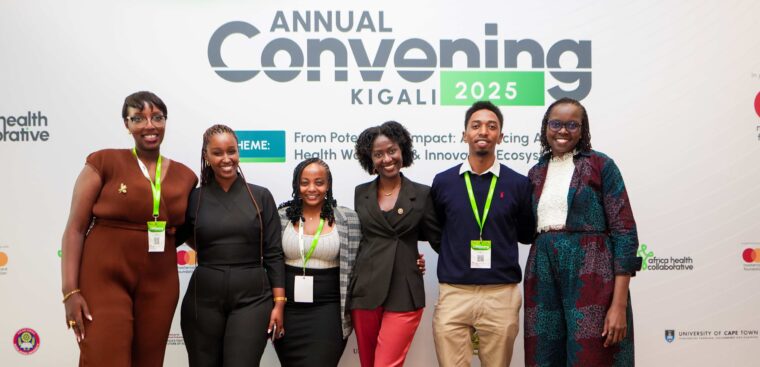
Africa Health Collaborative 2025: Driving Transformative Change in Primary Healthcare Future
Last October, over 170 policymakers, health experts, academics, and youth innovators from 14 countries came together for the Africa Health Collaborative’s (AHC) 2025 Annual Convening, hosted by the African Leadership University (ALU) in Kigali, Rwanda.

Engineering Dignity: Designing Low-Cost Prosthetics in the University of Cape Town’s MedTech Lab
Read about how Jemila Abdulai’s internship at UCT’s MedTech Lab strengthened her commitment to human-centered engineering, demonstrating how affordable innovations like the ADL Arm can expand access, restore dignity, and transform lives in underserved communities.

Graduate Scholarship Opportunities at the Kwame Nkrumah University of Science and Technology
Apply for graduate (MPh, MSc, MPhil, PhD) scholarships at the Kwame Nkrumah University of Science and Technology.
